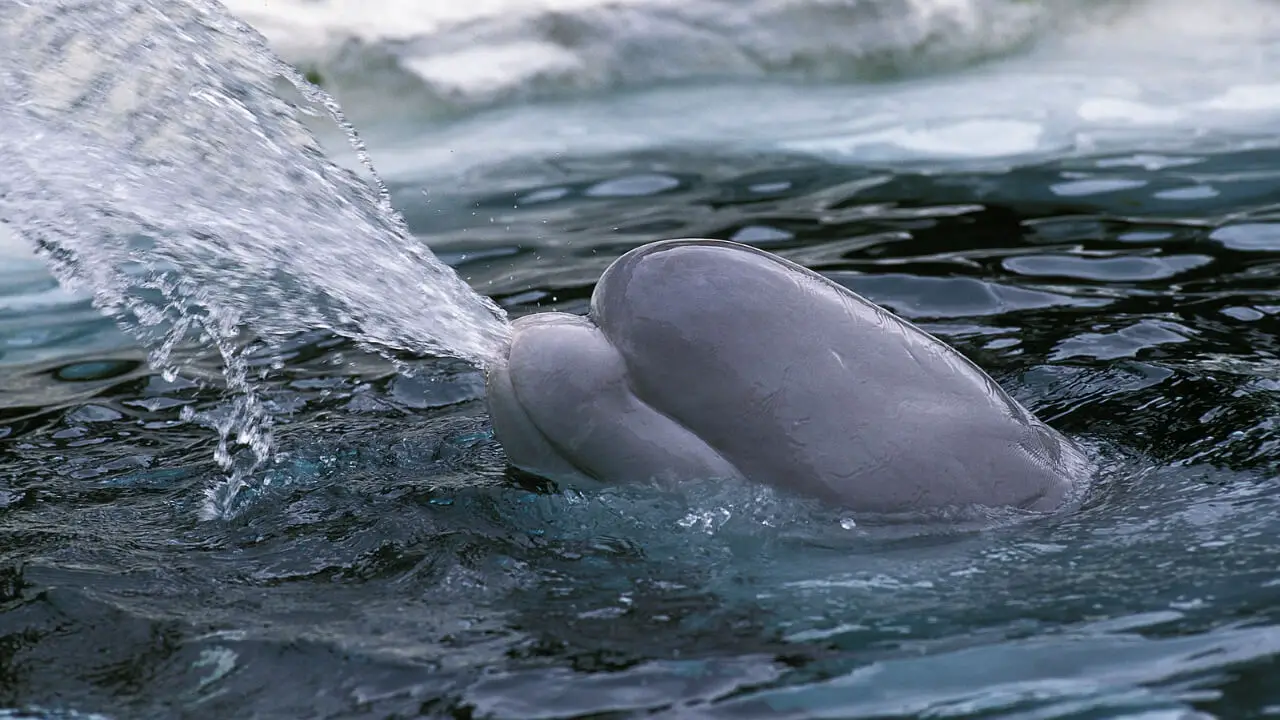The beluga whale is an iconic toothed whale species found in the Arctic and Sub-arctic waters of the Northern Hemisphere. Their total worldwide population is estimated to be about 150,000 to 200,000 individuals. In recent years, they face a rapid decline in their population because of human activities like pollution, climate change, and overfishing. Here we gathered all information about the population of beluga whales and the factors that are causing serious threats to their survival.

What is Beluga Whales Population?
It is estimated that approximately 150,000 to 200,000 beluga whales are left in the world. This number is continuously decreasing because of a variety of factors like climate change, pollution, overfishing, and hunting. Beluga whales became extinct in Southwest Greenland, which was one of their natural habitats. They are considered to be functionally extinct at Ungava Bay (Canada).
Currently, there are the following recognized populations of beluga whales:
- 55,000 individuals in western Hudson Bay, Canada
- 14,500 individuals at James Bay (southern end of Hudson Bay, Canada)
- 3,400 to 3,800 individuals in Eastern Hudson Bay
- 1,151 individuals at Cumberland Sound, Qikiqtaaluk region, Nunavut, Canada
- 889 individuals at St. Lawrence River Estuary, Quebec, Canada
- 21,400 individuals in Eastern Canadian Arctic
- 20,700 individuals at Chukchi Sea, Alaska, USA
- 7,000 to 9,200 individuals at the Eastern Bering Sea (Alaska, USA)
- 39,300 individuals at the Eastern Beaufort Sea (Alaska, USA)
- 2000 to 3,000 individuals at Bristol Bay (Alaska, USA)
- 300 individuals at Cook Inlet (South-central Alaska, USA)
- 5,600 individuals at White Sea, Russia
- 2,300 individuals at Ulban Bay, Russia
- 3,000 individuals at Anadyr, Russia
- 2,666 individuals at Shelikhov Gulf, Russia
- 4,000 individuals at Amur River, Sakhalin, Russia
- 1,500 individuals at Tugur Bay, northwestern Okhotsk, Russia
- 2,500 individuals at Udaskaya, Russia
- 549 individuals at Svalbard, Norway
How many beluga whales are left in captivity?
The beluga whale is one of the most common cetacean species held in captivity. Their estimated number worldwide in captivity is 300. At least 13 different countries held them in aquariums and marine parks. Canada, the United States, China, Japan, Russia, and Ukraine hold the highest number of belugas in captivity.
Why are belugas going extinct?
Beluga whales are going extinct because of many human-caused environmental issues. The major issues that caused a rapid decline in their population and led them toward extinction are:
1. Effects of Climate change
Climate change poses a major threat to the survival of beluga whales. The temperature of the oceans is warming because of climate change, which is causing changes in the seasonal coverage and thickness of Arctic ice that is never known before. These changeable ice patterns affect the ability of beluga whales to use their common typical routes for migration. It is increasing their potential to become trapped and stuck in the ice.
🔬 Subscribe to SciMail
Get the latest science discoveries straight to your inbox!

2. Human Pollution and Beluga Whales
Beluga whales need clean water and healthy habitats to survive and flourish. However, their habitat is no longer healthy because of the industrial wastes released into the environment, oil drilling in the ocean, and other pollutants like plastics. It harms the overall health of belugas and also affects their breeding abilities.
3. Overfishing and Hunting of Beluga Whales
Beluga whales are hunted for their meat and other body parts. They are also often caught unintentionally in fishing gear and nets. Besides this, belugas are also facing competition for food because humans are continuously encroaching on their habitat for fishing. This human activity is disturbing the natural balance between predator and prey species and causing a decrease in their food source.
Are belugas endangered?
Like many other animal species, beluga whales are also endangered because of climate change and a variety of other human activities. Their conservation status on the IUCN Red List is Near Threatened. Human activities like pollution from oil drilling and shipping activities in the ocean, the release of industrial wastes into the oceans, and plastics cause a decline in the beluga whale population. Due to overfishing in their habitat range, belugas are facing the issue of decreased food and disturbance in the natural balance between predator and prey species.
In recent years, all these factors together with climate change caused a rapid decline in the worldwide population of beluga whales. Carbon emission is a leading cause of global warming and climate change.
It should be decreased because it is vital for humans and all other creatures to survive on this planet. To help beluga whales to remain part of our world, serious actions should be taken now to decrease pollution levels in the oceans, protect their critical habitat areas, and implement sustainable fishing practices.




Leave a Reply